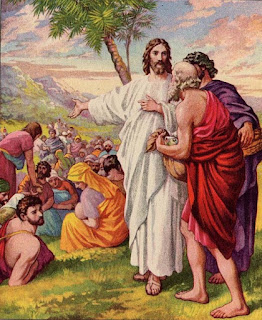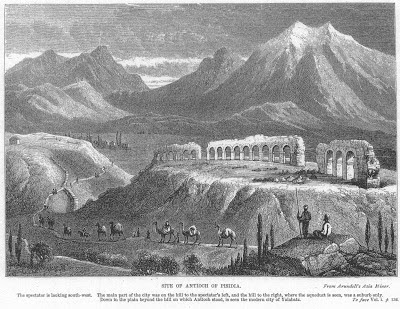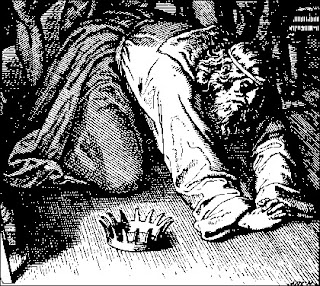 |
| David flees Jerusalem - Artist unknown |
TO CHEW ON: Then the king said to Zadok, “Carry the ark of God back into the city. If I find favor in the eyes of the Lord, He will bring me back and show me both it and His dwelling place. But if He says thus: ‘I have no delight in you,’ here I am, let Him do to me as seems good to Him.”
If you follow North American politics, you will recognize the predicament in which David finds himself here. The tide of public opinion has turned against him as a leader and someone else is now on the upswing. In David's case his rival, son Absalom, has been secretly cultivating public approval for a while (2 Samuel 15:5,6).
When David gets word that Absalom is about to make a play for the throne, he seems to accept it without question or resistance.
- He and his supporters leave town (2 Samuel 13:14).
- He tries to send his mercenary officer Ittai and men to join Absalom (though they don't go - 2 Samuel 13:19-20).
- He sends the priest Zadok and the Levites, who are carrying the ark, back to the city. He doesn't presume that God's favor is with him and it appears he doesn't want to get this religious icon tangled up in an uncertain battle.
But then a little spark of resistance bursts into flame. He asks Zadok and the Levites to be his eyes and ears in the city and send him word about what's happening (2 Samuel 13:27-28). When he meets his wise counselor Hushai, who has come to join the refugees, more kingly craftiness kicks in (or maybe these are divine "aha" moments). He suggests to Hushai that instead of joining them, he play the part of a turncoat and try to counteract the wisdom of Ahithophel, who is genuinely on Absalom's side (2 Samuel 13: 33-37). Will it work? We'll find out in the next couple of days.
What strikes me about this part of the story is how David expresses complete faith in God. He interprets even Absalom's treachery in terms of God working, showing disapproval or approval of his kingship.
I think we would do well to view our circumstances more consistently through the lens of God in control of them, like David does here, instead of blaming ourselves, other people, or even chance for what's happening to us.
PRAYER: Dear God, it's hard to tease apart my actions and their consequences from Your will. Help me to consistently view the happenings in my life (whether I feel I or someone else caused them or not) as filtered through Your wisdom about me and Your love for me. Amen.
*********
Unless otherwise noted all Scripture quotations are taken from the New King James Version®. Copyright © 1982 by Thomas Nelson, Inc. Used by permission. All rights reserved.



















